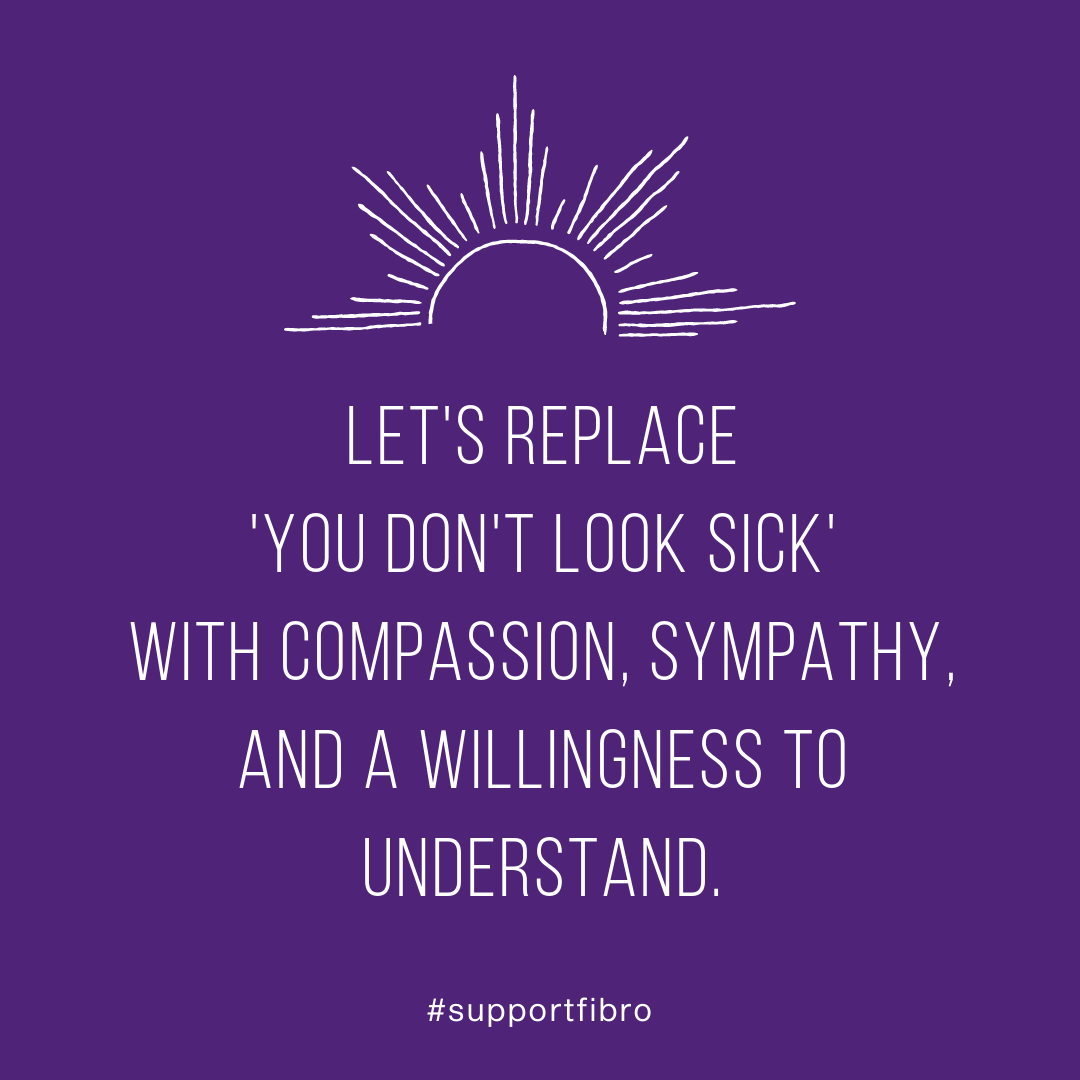This article first appeared in The Fibromyalgia Magazin, in July 2016.
Since my diagnosis in 2012, I have asked the question, “Should I tell my friends and family that I suffer from fibromyalgia?” This naturally leads to other questions such as how much to tell them, how it affects me, and how it may affect the relationship. In the beginning, I didn’t feel comfortable sharing my illness. I was worried about what the other person would be feeling – pity, skepticism, or even judgment. None of those feelings would add any value to the relationship, and would just be a cloud hovering over it.

My Experience
In Fall 2013, after recently moving into a new community, my family and I had a garage sale. A neighbor a few doors down stopped by, along with her twin boys, to greet us. She and I immediately hit it off. We talked about our kids, chaotic schedules, and other mom topics. Despite the pleasant conversation, the uncomfortable feeling of hesitation possessed me.
I was thinking about how to bring up the subject of my having fibromyalgia. It lingered in the back of my mind because we seemed to be getting along and it could, possibly, lead to a great friendship. But – what if my illness caused a weight that she did not want to share? What if she simply did not want to be burdened with the complexity of it all? In my mind, we had become friends only to be broken up by my illness, and yet, in reality, we had only met five minutes ago.
Why did I think this way? Why couldn’t I just have a friendship with a neighbor I got along with? Why would I doom a friendship before it even had a chance to begin?
More importantly, why did I have all these ‘what ifs’?
Others’ Experiences
After discussing these feelings with other fibromyalgia thrivers, I discovered I was not alone. There are various degrees of these feelings.
Some of the feelings include:
- Pride of not wanting to admit to having an illness
- Being viewed as weak, guilty, or less than
- Being overlooked
- Not being dependable
- Letting others down
- Being an embarrassment
You may feel as though the other person will not believe you are truly sick because of the mantra ‘you don’t look sick’. Even worse, you may feel like the other person thinks you are exaggerating the severity of your sickness in order to seek attention or special treatment.
On the other hand, you may feel as though telling others will cause them to have pity or worry more than necessary. These feelings may lead you to minimize your pain and suffering in order to comfort that person.

Fibromyalgia is an Uncertainty
Fibromyalgia is a complicated disease with varied symptoms that change from hour to hour, day to day. One day we will be able to go shopping with a group of friends, and the next day we will be confined to our bed because of the previous day’s activities. And that’s just the thing – we don’t know and the uncertainty of it all causes guarded feelings.
Those of us living with fibromyalgia, whether we’ve lived with it for years or months, are confused by its complexity. We begin to doubt our self-worth in terms of maintaining healthy and long-lasting relationships.
Remember the neighbor that I met at the garage sale? The one in which we were the greatest friends and had broken up in the span of five minutes? I did tell her about my illness, and guess what? She didn’t break up our friendship! Today, she is my closest and dearest friend.
Conclusion
If I had let all those hesitations and feelings of doom preside over me, I would have only failed myself. I would have cheated us out of a companionship that has strengthened both of us in more ways than one. She has taught me compassion, and that it is okay to tell others about your illness. It doesn’t have to be either a burden or bring down a relationship.
Give others, and yourself, a chance. There will be people who will doubt your illness, believe you are faking it, or seek attention. But look at it this way: better to find out right away rather than invest yourself in a relationship with a toxic person. It’s a way to weed out those that are not worth your time. You deserve better, and you deserve only the best of people in your life.
Once you have made the decision to tell others, the next step would be how. How to do it will be discussed in next month’s issue.

The Fibromyalgia Magazine
I was a regular contributor to the international magazine The Fibromyalgia Magazine for several years. My articles cover various fibromyalgia aspects with a focus on fibro parenting (parenting with fibromyalgia).
The Fibromyalgia Magazine is a monthly magazine created by the creators of UK Fibromyalgia and has been going strong for over twenty years. It’s composed of various writers within the fibromyalgia field and features research news, lobbying, awareness, education, pain management, news, and more.

Thank you for this great and helpful article! Having been diagnosed with RA a little over a year and a half ago, but then adding in Fibro this past winter, has left me with a lot of those same “What if” scenarios in my mind. I appreciate your honesty and encouragement to be brave with our relationships! –Blessings to you!
It’s difficult to take that step forward. After a few times doing it, it becomes less intimidating. I have several new friendships, and the last few have started without the hesitation. It was freeing!
This is such a good post and made me think. I have Ehlers Danlos Syndrome, and it’s hard to tell others because no one has heard of it.
Thank you for the compliment! It made me think, too, as I was writing it. When you just do something, it’s sometimes hard to convey that to others. Fibromyalgia to me, like EDS is to you, so well known, and it’s weird to think others haven’t heard of it. Thank you for reading and commenting! I appreciate it!
Pingback: Fibromyalgia Relationships: Part 2: Communicating Your Illness